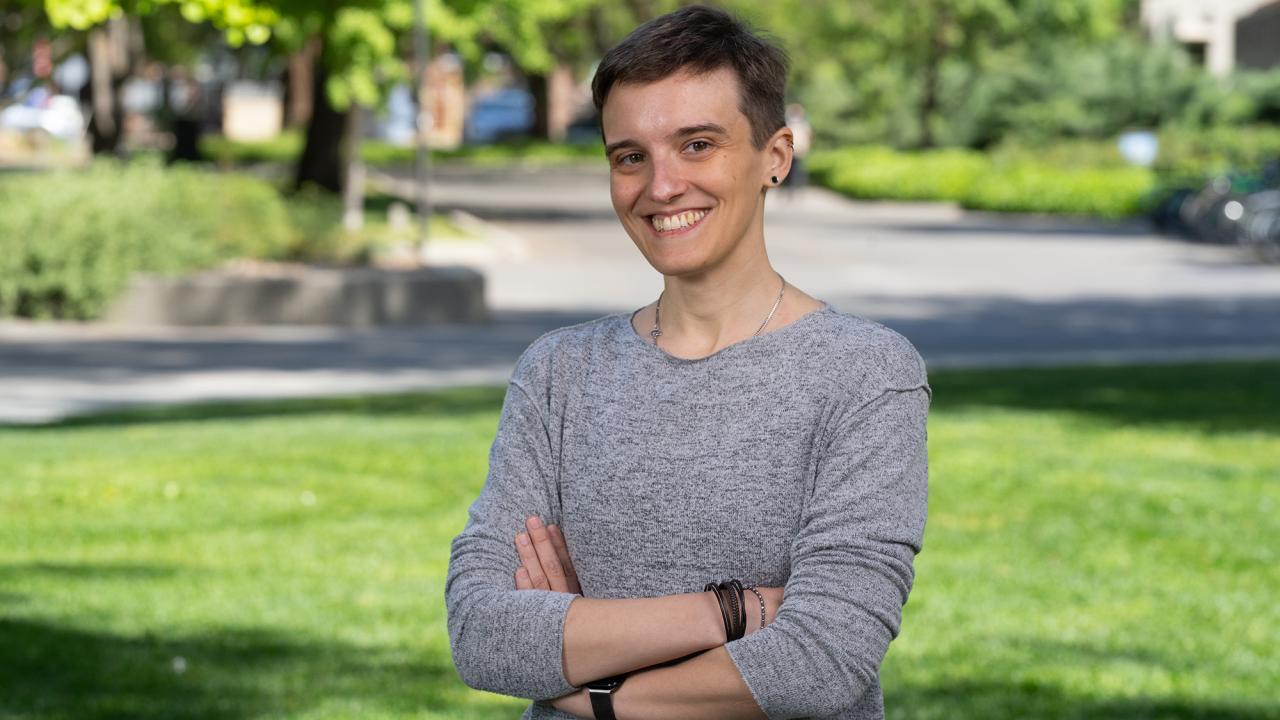
Snail Researcher Wins UC Davis Award for Innovation and Creative Vision
Alice Accorsi investigates the genetic mechanisms behind eye regeneration in snails
Developmental biologist Alice Accorsi, an assistant professor in the Department of Molecular and Cellular Biology, is the recipient of the 2025 UC Davis Early Career Faculty Award for Creativity and Innovation.
The award was established to honor and support exploration and creativity in non-tenured faculty members. It comes with $40,000 of research funding that Accorsi plans to use to understand how a species of freshwater snail is able to fully regenerate its eyes.
“Receiving this award is an incredible honor and I am celebrating it with my lab, my department, and the College of Biological Sciences, who have all been so welcoming and supportive since I accepted this position,” said Accorsi, who joined UC Davis in March 2024.

A snail’s eye view
Human eyes are vulnerable to irreversible damage, but Accorsi discovered that a species of freshwater snail, the apple snail (Pomacea canaliculata), can fully regenerate its eyes if they are amputated, even as adults. Like humans, the snails have complex “camera-type” eyes with a cornea, lens, and retina. By investigating the genetic mechanisms that enable this astounding feat, Accorsi hopes to pinpoint the differences between animals that can and cannot regenerate organs, which could ultimately inform future efforts to enable eye recovery in humans.
“I'm fascinated by how we can create a full organ from just a handful of cells, and I think that process is even more interesting during regeneration,” said Accorsi. “These snails offer the opportunity to explore questions about how the nervous system properly reconnects to the retina so that visual stimuli can be seen and interpreted in exactly the same way again.”
Sequencing - and editing - a snail’s genome
Accorsi was involved in sequencing the apple snail’s genome during her postdoctoral work at Stowers Institute for Medical Research, where she also developed CRISPR/Cas9 methods to edit the snail’s genomes.
Now, Accorsi plans to use these CRISPR/Cas9 to create snails that are missing specific genes, like those known to be involved in photoreceptor or lens development in humans. The award will support Accorsi’s first graduate student, Annika Patel, who will carry out the experimental work.
“We want to know whether the mechanisms that the snail uses for eye development are reactivated during regeneration in adults, or whether regeneration involves a completely different mechanism,” said Accorsi. “This award comes at a very exciting time, as my lab is fully set up, the science is gearing up, and it will support the first efforts to understand how apple snails can fully regenerate their visual system.”

Media Resources
- Liana Wait is a freelance science writer based in Philadelphia. She has a Ph.D. in ecology and evolutionary biology and specializes in writing about the life sciences.
